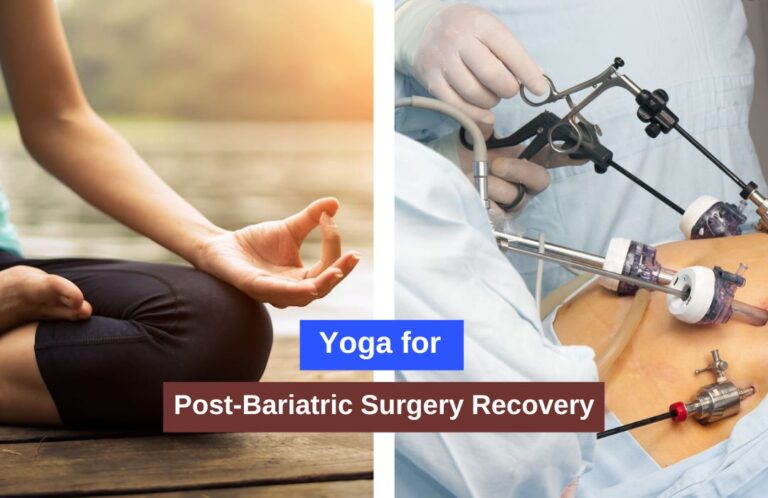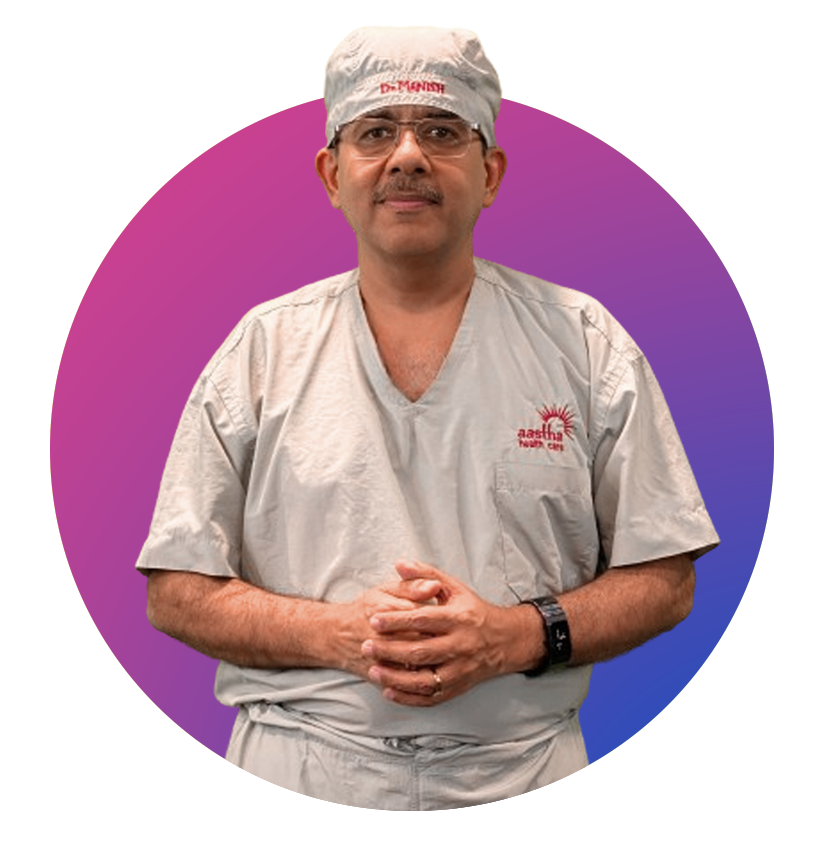
Vidhi Dave
Bariatric Dietician & Content Writer
Yoga for Post-Bariatric Surgery Recovery

It is time to roll out your yoga mat and learn about a distinctive combination of physical and mental activities that have captivated practitioners of yoga for thousands of years in different parts of the world. The wonderful thing about yoga is that everyone may experience its positive effects; you don’t have to be a trained yogi or yogini to do so. No matter how young or old you are, or how strong or unfit your body is, yoga has the ability to both still the mind and strengthen the body. Do not let the technical terms associated with yoga, as well as the sophisticated yoga studios and challenging positions, frighten you. Everyone can do yoga.
The goal of yoga, as a way of life as a whole, is to bring unity to the practitioner’s mind, body, and soul.
Yoga can be broken down into six sub-disciplines. Each of the branches exemplifies a distinctive set of qualities and areas of concentration.
These are the six different branches:
Hatha yoga: Hatha yoga is the branch of yoga that focuses on strengthening both the body and the mind through various physical and mental postures.
Raja yoga: Meditation and a strict devotion to a series of disciplinary measures known as the eight limbs of yoga are required to practice Raja yoga, which is a branch of yoga.
Karma yoga: Karma yoga is a spiritual practice that entails performing acts of service with the intention of removing selfishness and negativity from the world’s future.
Bhakti yoga: Bhakti yoga seeks to develop the path of devotion as a constructive means of directing one’s emotions and cultivating acceptance and tolerance as its ultimate goals.
Jnana yoga: Jnana yoga is a subset of yoga that focuses on cultivating wisdom, following the path of the scholar, and enhancing one’s intellect through academic pursuits.
Tantra yoga: Tantra yoga is the practice that guides a person through rituals and ceremonies as well as the culmination of a relationship.
How will Yoga be helpful Post Bariatric Surgery?
The inability to move freely is a problem that affects a significant number of formerly fat people. Yoga can assist with this issue. Even while you are only walking, you will find that you are more flexible and have a broader range of motion as you continue to exercise. This will be the case even if you do nothing else except walk.
The practice of yoga is an excellent method for developing a greater understanding of one’s body, which can assist one in recognizing when something is incorrect with their physical health. It can be challenging for many individuals who struggle with binge eating disorders to tune in to what their bodies are telling them.
After weight loss surgery, maintaining a regular exercise routine is essential to the development of new muscle mass, the continued reduction of fat, and the avoidance of future weight gain. Even if yoga isn’t as rigorous as some other forms of exercise, the benefits it provides to your body are nonetheless significant.
Yoga is an excellent preventive strategy for those who have undergone weight loss surgery because it improves the core muscles that are commonly weakened after surgery. Those who have undergone weight reduction surgery are more likely to develop back pain as a result of the weakened core muscles. When you have a strong core, it is far less likely that you will harm other parts of your body while you are working out or lifting heavy objects.
One additional advantage of practicing yoga after having weight reduction surgery is that it may assist you in experiencing a greater sense of mastery over your body following the procedure. Because yoga helps people build a healthy relationship between their mind and body again, it is especially useful for individuals who have suffered in the past with disordered eating or a bad self-image prior to undergoing surgery.
Yoga also needs practices of deep breathing, which are particularly useful for boosting lung capacity, which is sometimes impacted by weight. One of the main benefits of yoga is that it demands deep breathing techniques.
One of the most helpful methods to practice yoga after having weight reduction surgery is to use a chair for support whenever it’s necessary. While there are many various ways to practice yoga, one of the most useful ones is to use a chair.
As a result of the fact that many yoga studios provide sessions at no cost or at significantly discounted rates, the practice is accessible to practically anybody with limited financial resources.
Individuals who are recovering from bariatric surgery may find that their lives are profoundly altered via their practice of yoga. Even though it might not be the primary contributor to weight loss following surgery, it does offer a wide variety of additional benefits that are extremely beneficial. Individuals are able to improve their physical, mental, and social well-being via the practice of yoga.
It brings about a state of calm, reduces levels of tension, and encourages more mindful eating practices. Individuals have the ability to take a more holistic view of their health journey via the practice of yoga, which contributes to general wellness and self-care. It is therefore impossible to overestimate how beneficial it is to a person’s general quality of life, despite the fact that it may not be an effective strategy for weight loss.
Aastha Bariatric is a best & top bariatric center in Mumbai. Bariatric surgeon & his team helps to keep up with good health post bariatric surgery. One can get personalized guidance on your post-operative diet, including when to eat and what foods to include at each stage of recovery.







